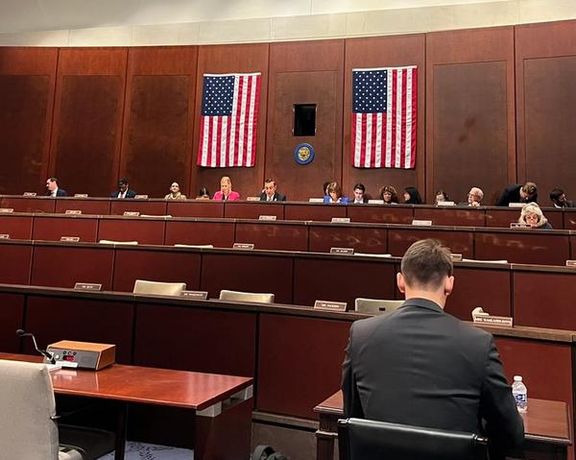US House Moves To Make 1996 Iran Sanctions Permanent

The Foreign Affairs Committee of US House of Representatives unanimously passed a resolution to make some punitive measures against Iran permanent.

The Foreign Affairs Committee of US House of Representatives unanimously passed a resolution to make some punitive measures against Iran permanent.
The bipartisan bill called Solidifying Iran Sanctions Act of 2023, has the potential to make the 1996 sanctions against Iran – or several other measures -- permanent by deleting the 'sunset clause' in any action against the Islamic Republic, a provision that provides an expiry date for a measure.
The bill, now heading to a full vote on the House floor, strikes a section from the 1996 legislation that set 2026 as the sunset date, making permanent sanctions against the regime that are designed to slow down research and development of nuclear and biological weapons as well as preventing terrorist actions against Washington and its allies.
The 1996 law requires the imposition of sanctions with respect to Iran’s illicit weapons programs, conventional weapons and ballistic missile development, and support for terrorism, including Iran’s Revolutionary Guards Corps, read part of the bill.
"This bill takes the long overdue step of striking the arbitrary sunset from the Iran Sanctions Act, so that sanctions against the regime will only be lifted if Iran stops its threatening behavior," the House Foreign Affairs Committee chairman Rep. Michael McCaul (R-TX) said. Representatives Michelle Steel (R-CA) and Susie Lee (D-NV) helped bring political support for the Solidifying Iran Sanctions Act (SISA).
"By making these sanctions permanent, the US is signaling to Iran that we won't tolerate their continued aggression and to our allies that they must also increase their pressure on the [rogue] nation," Steel said.
"Iran’s evil regime has proven they cannot be trusted to negotiate in good faith," Steel told Fox news, adding, "Only through strength can we show the path to peace, end their brutal attacks on their own people, and prevent a nuclear Iran."
Lee said the bipartisan bill "is one step closer to becoming law and keeping Iran in check," adding, "Regardless of political party, Congress must stand firm against the Iranian regime’s brutal repression of its own people, its funding of terrorism abroad, and its reckless pursuit of nuclear weapons."
The 1996 sanctions are distinct from a series of sanctions that the Trump administration imposed in 2018 and 2019 against Iran's oil exports and international banking. However, Trump based his sanctions partly on the Iran Sanctions Act of 1996. Whether this can potentially hinder any attempts by the Biden administration to reduce the more recent sanctions in a deal with Iran is not clear.
In an interview with Iran International’s Arash Alaei, Representative Keith Self (R-TX) said, "We must deter Iran, first of all, in their nuclear program, as a nuclear war is not something you can even contemplate. And second, we must encourage the Iranian people to rise up against the regime."
Alaei says that Democrats are reluctant to comment on the measures against the Islamic Republic due to a lack of comprehensive Iran policy by the Biden administration.
Criticizing the Biden administration, Senator Kevin Cramer (R-ND) told Alaei that reports about impending deals to unfreeze the regime’s assets in Iraq or South Korea indicate that the administration is following a policy of appeasement with Iran, and “all the bad actors” like China, North Korea and Russia.
“What we shouldn’t do is weaken our position with Iran... we should we projecting strength,” he said.